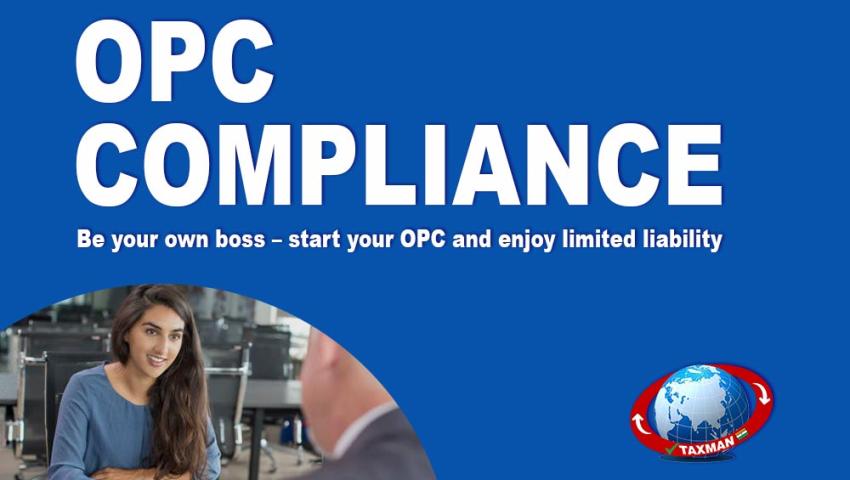OPC Compliance
OPC Compliance
A One Person Company (OPC) is a unique business structure designed for sole entrepreneurs. However, like other business entities, OPCs are required to meet specific compliance requirements to maintain their legal status and avoid penalties. At Global Taxman, we help OPCs stay compliant with all regulatory obligations efficiently and accurately.
What is OPC Compliance?
OPC Compliance refers to the set of statutory requirements that a One Person Company must fulfill under the Companies Act, 2013. These include annual filings, maintaining proper records, and meeting financial reporting standards. Compliance ensures the smooth functioning of the OPC and avoids penalties for non-adherence.
Key Compliance Requirements for OPC
- Appointment of Auditor: An OPC must appoint an auditor within 30 days of incorporation to audit its financial records.
- Annual Returns Filing: OPCs must file annual returns with the Registrar of Companies (RoC) in Form MGT-7A.
- Financial Statement Filing: OPCs must file their financial statements in Form AOC-4 annually.
- Income Tax Filing: OPCs are required to file income tax returns annually by the due date, typically July 31st.
- Statutory Meetings: Though OPCs are exempt from holding general meetings, they must maintain proper board resolutions and records.
- Director's KYC: The sole director must complete DIN eKYC annually to keep the Director Identification Number active.
- GST Compliance (if applicable): OPCs registered under GST must file monthly, quarterly, or annual GST returns based on their turnover.
Benefits of Staying Compliant
- Avoid Penalties: Compliance ensures you avoid fines and legal consequences for non-compliance.
- Builds Credibility: Maintaining compliance enhances your company’s reputation and trustworthiness among stakeholders.
- Access to Financial Support: Banks and financial institutions are more likely to support compliant businesses.
- Business Continuity: Proper compliance reduces the risk of operational disruptions or legal challenges.
Step-by-Step Compliance Process
- Maintain Financial Records: Keep accurate records of income, expenses, and assets.
- Appoint an Auditor: Ensure the auditor is appointed to audit the financial statements annually.
- Prepare Financial Statements: Create a balance sheet and profit & loss account as per statutory requirements.
- File Annual Returns: File Form MGT-7A and AOC-4 with the Registrar of Companies.
- Complete Income Tax Filing: Submit income tax returns by the due date to avoid penalties.
- Ensure DIN eKYC: Update and verify the Director Identification Number (DIN) annually.
Documents Required for OPC Compliance
- Audited financial statements (Balance Sheet and Profit & Loss Statement).
- Income tax computation and filing details.
- GST return filing records (if applicable).
- Details of transactions and business activities during the financial year.
- Director’s KYC documents.
Why Choose Global Taxman?
- Expert Services: We handle all your compliance needs, ensuring accuracy and timeliness.
- Tailored Solutions: Our services are customized to meet the specific requirements of your OPC.
- Transparent Pricing: Affordable and clear pricing without hidden charges.
- End-to-End Support: From documentation to filing, we take care of the entire compliance process.
Frequently Asked Questions (FAQs)
- What happens if an OPC fails to meet compliance requirements? Non-compliance can result in penalties, fines, or even the disqualification of the director.
- Is GST registration mandatory for OPCs? GST registration is required if the OPC’s turnover exceeds the prescribed threshold or if the business falls under specific categories.
- Can the sole member of an OPC transfer ownership? Yes, the sole member can nominate another person to take over ownership in case of incapacity or resignation.
- How long does the compliance filing process take? Filing compliance typically takes 1-2 weeks, depending on the availability of documents and approvals.

OPC Compliance
Our expert OPC services. We manage annual filings, financial reporting, GST returns, and all legal obligations under the Companies Act. Get in touch today!
